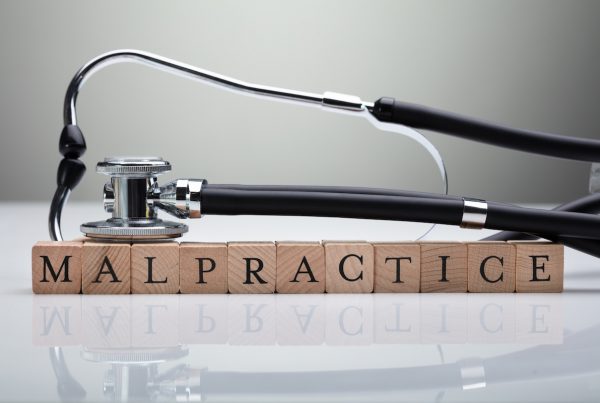When you seek medical treatment, you’re placing trust in the hands of healthcare professionals. This trust comes with a responsibility—the duty of care—which says doctors, nurses, and even the hospital as a whole provide a reasonable standard of care to you, the patient.
However, sometimes this duty is breached. When that happens, it’s natural to feel overwhelmed and uncertain about your next steps. That’s why we’ve put together this guide to help you understand the duty of care and what constitutes medical negligence. Keep reading to learn more about the general responsibilities of healthcare professionals, plus a few factors to consider before taking legal action.
The Duty of Care in Healthcare: What it Means for You
“Duty of care” is a fundamental principle in healthcare that applies to everyone involved in your treatment, from doctors and nurses to the hospitals themselves. Essentially, it means that they’re required to treat you with reasonable skill, care, and diligence.
Understanding Your Doctor’s Duty of Care and Professional Obligations
Your doctor is not just providing a service; they’re fulfilling both a legal and ethical obligation to offer medical care that meets the professional standards expected in their field. This includes:
- Accurately diagnosing and treating medical conditions based on their education, training, and experience.
- Obtaining informed consent from patients before performing any procedures or treatments.
- Maintaining accurate and complete medical records.
- Providing appropriate follow-up care and monitoring.
- Referring patients to specialists when necessary.
How Nurses’ Duty of Care Protects Your Well-Being
Nurses do most of the heavy lifting regarding day-to-day patient care. In return, they shoulder a set of duties to safeguard your well-being.
- Closely monitoring and assessing your condition.
- Administering medications and treatments as prescribed by the attending physician.
- Providing compassionate and attentive care.
- Communicating any changes or concerns about your condition to the appropriate medical staff.
- Follow established protocols and procedures.
Expectations of Healthcare Organization’s Expectations to Uphold Duty of Care Standards
Even if an individual doctor or nurse makes a mistake, the hospital can still be held responsible if they have not provided proper training, resources, or safeguards. Some organizations will voluntarily take responsibility in those cases. Other times, it will need to be proved through the legal system that they are liable for their employees’ negligence on the job.
At the end of the day, hospitals should do more than hire good staff. They have an expectation to create an institutional environment conducive to safe, helpful patient care—at every level.
These expectations include:
- Ensuring adequate staffing levels and appropriate staff-to-patient ratios.
- Providing comprehensive training and continuing education for medical staff.
- Implementing effective communication channels between healthcare professionals.
- Maintaining a clean and safe environment for patients.
- Have safeguards to help prevent medical equipment failures.
When hospitals fail at that duty, the consequences can be catastrophic—and they must be held accountable in the courtroom.
Examples of Medical Negligence That Breach Duty of Care
Sadly, breaches of duty of care and medical negligence occur far too often. They can range from common, minor mistakes to reckless acts like:
- Misdiagnosis or failure to diagnose a condition
- Surgical errors, such as operating on the wrong body part or leaving foreign objects inside the patient
- Medication errors, including prescribing the wrong medication or incorrect dosages
- Failure to properly monitor a patient’s condition or respond to changes in a timely manner
- Inadequate communication between healthcare providers, which leads to preventable complications or injuries
- Lack of proper infection control measures, resulting in hospital-acquired infections
- Premature discharge of a patient without proper follow-up instructions or care arrangements
Four Allegations Typically Established in Most Duty of Care & Medical Negligence Lawsuits
- You Deserved a Duty of Care: You must demonstrate that the healthcare provider owed you a duty of care based on the patient-provider relationship.
- Your Healthcare Provider Breached that Duty: Evidence must be provided to show that the healthcare provider failed to meet the accepted standard of care, breaching their duty.
- That Breach Directly Caused Harm/Injury: It must be proven that the breach of duty directly caused your injury or harm.
- Damages as a Result of Harm/Injury: You must demonstrate that you suffered quantifiable damages, such as additional medical expenses, lost wages, pain and suffering, or other losses.
In theory, it sounds simple. But in reality, it’s a thorough process of gathering medical records, expert witness testimony, and any other evidence to build the strongest case. It’s not something to do alone—you’ll want an experienced malpractice lawyer who knows how to advocate for your rights.
Do I Have a Case? Signs Your Duty of Care May Have Been Neglected
So if you’ve been looking at your experience and wondering, “Did my healthcare providers seriously neglect their duty of care here?” run through questions like:
- Did the healthcare provider fail to properly diagnose or misdiagnose your condition?
- Were there delays in receiving treatment or receiving the appropriate treatment?
- Did the healthcare provider fail to obtain your informed consent before performing a procedure or treatment?
- Were there medication errors or incorrect dosages administered?
- Were there any surgical errors, such as operating on the wrong body part or leaving foreign objects inside you?
- Did the healthcare provider fail to adequately monitor your condition or respond to changes?
- Were there any issues with communication or coordination between healthcare providers involved in your care?
- Did you experience complications or injuries that could have been prevented with proper care and precautions?
- Were you discharged prematurely or without proper follow-up instructions or care arrangements?
If you’re answering “yes” to any of those, it’s a huge red flag that your duty of care was violated in a big way. Time to get a top-notch malpractice lawyer on your side
Getting Help With Your Duty of Care & Medical Negligence Claims
Being a victim of medical negligence due to a breach of duty of care is an incredibly difficult and traumatic experience. When you trust healthcare professionals, you expect to receive diligent care that meets the highest standards. If you believe that you or a loved one has been a victim, it’s time to advocate for your rights.
That’s where Simon Law comes in. Our medical malpractice team will conduct a thorough investigation of your case, gathering all necessary evidence to advocate for your rights in the pursuit of justice. Take the first step towards seeking the compensation you’re owed. Schedule a free consultation with our medical malpractice attorneys today!







